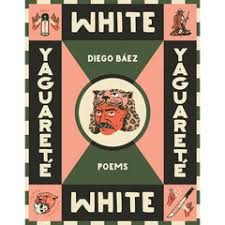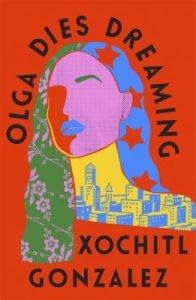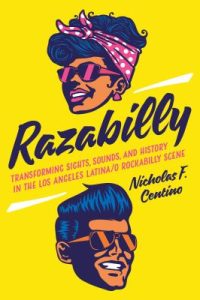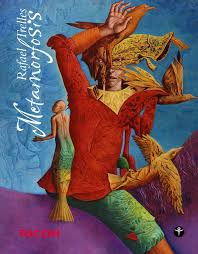Fall 2024 brings exciting changes to East Campus Libraries. Lilly Library is being renovated and our staff and services have moved!!! Our first collection spotlight of the year can be found in Lilly Library at Bishop’s House. Our spotlight features books and films that celebrate Hispanic creators and stories. This post, the first of two, highlights a selection of the books on display. Stay tuned for the movies. Come to East Campus, explore the spotlight, and say hello to Lilly staff in our new digs!
PART I – BOOKS

POETRY
Yaguarete White: Poems
Diego Báez’s debut collection explores the sense of alienation that accompanies those who hold multiple, sometimes contesting identities. A second-generation immigrant of mixed Paraguayan and white European descent, the American-born Báez wrestles with his heritage and with what it means to feel perpetually out of place.
More poetry:
Suggest Paradise: Poems
Banana [ ]
The Book of Wanderers
Cantoras

FICTION
Olga Dies Dreaming
Set against the backdrop of New York City in the months surrounding the most devastating hurricane in Puerto Rico’s history, Olga Dies Dreaming is a story that examines political corruption, familial strife and the very notion of the American dream – all while asking what it really means to weather a storm.
More fiction:
Silver Nitrate
Latin@ Rising: an Anthology of Latin@ Science Fiction and Fantasy

MUSIC
Razabilly: Transforming Sights, Sounds, and History in the Los Angeles Latina/o Rockabilly Scene
Pairing a decade of participant observation with interviews and historical research, Nicholas F. Centino explores the reasons behind a Rockabilly renaissance in 1990s Los Angeles and demonstrates how, as a form of working-class leisure, this scene provides Razabillies with spaces of respite and conviviality within the alienating landscape of the urban metropolis. A nuanced account revealing how and why Los Angeles Latinas/os have turned to and transformed the music and aesthetic style of 1950s rockabilly, Razabilly offers rare insight into this musical subculture, its place in rock and roll history, and its passionate practitioners.
More music:
The Sounds of Latinidad: Immigrants Making Music and Creating Culture in a Southern City
Rock and Roll Por Vida: Hispanics in Rock, Metal, and My Journey

ART
Metamorfosis – A major review of the career of Rafael Trelles (b. Puerto Rico) since 1992. Included are over 80 images of surreal, fantastical paintings and sculptures. Trelles has an international presence. He founded the group Delfín del Cielo and in Mexico he was one of the founding members of La Iguana Marina and in Puerto Rico, El Alfil.
More art:
Images of the Spirit: Photographs by Graciela Iturbide
Contemporary Casta Portraiture: Nuestra “Calidad”
LatinX Photography in the United States: a Visual History
Our America: the Latino Presence in Art

MEMOIRS
How Does it Feel to be Unwanted?
Veteran reporter, Eileen Truax, weaves the stories of 18 immigrants with cogent analysis of the broader social circumstances of their status to offer a compelling picture of courage and resistance. She relates riveting personal stories while making the case for a more humane immigration policy
More memoirs:
¡Hola Papi! : how to come out in a Walmart parking lot and other life lessons
We Were Always Here: a Mexican-American’s Odyssey
On Becoming Nuyoricans

NONFICTION
LatinX
LatinX has neither country nor fixed geography according to Duke professor, Claudia Milian. It is the most powerful conceptual tool of the Latino/a present, an itinerary whose analytic routes incorporate the Global South and ecological devastation. Milian’s trailblazing study deploys the indeterminate but thunderous “X” as intellectual armor, a speculative springboard, and a question for our times that never stops being asked. LatinX sorts out and addresses issues about the unknowability of social realities that exceed our present knowledge.
More non-fiction:
Making the Latino South: a history of racial formation (by Duke professor, Cecilia Márquez)
Abstract barrios : the crises of Latinx visibility in cities
Latino Political Power
Queering the Border: Essays
Latinidad at the Crossroads: Insights into Latinx Identify in the Twenty-First Century


